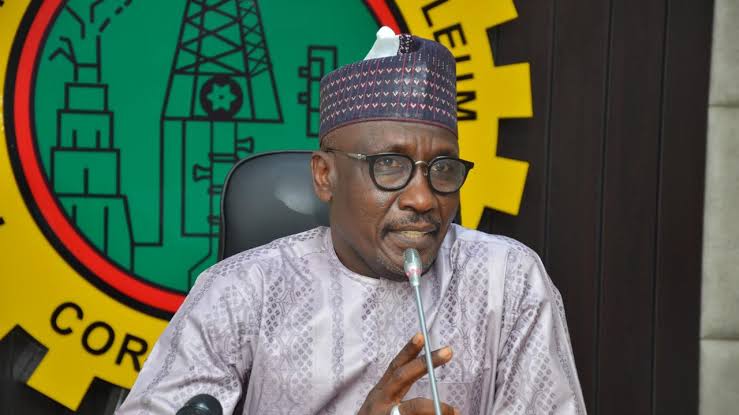
The Nigerian National Petroleum Company Limited (NNPCL) has sent all management staff with less than 15 months to statutory retirement on compulsory early retirement.
A statement signed by management the oil company on Monday, September 18, 2023 and posted on its X handle (formerly Twitter) early Tuesday morning stated that the early retirement takes immediate immediate effect from Tuesday, September 19, 2023.
It added that the decision became imperative in order to pursue effective organisational renewal to support the delivery of NNPCL’s strategic business objectives.
“In our bid to pursue effective organizational renewal to support the delivery of our strategic business objectives, it has become imperative to rejuvenate our workforce.
It wrote: “Consequently, in addition to the recent exit of three (3) Executive Vice Presidents, other Management Staff with less than fifteen (15) months to statutory retirement will be exiting the Company effective 19th September 2023.
“This is in line with our commitment to scale up NNPC Ltd’s capabilities through targeted talent management and equal opportunity for all Nigerians.”
LEADERSHIP recalls that a couple of days ago on September 17, 2023, NNPCL announced the appointments new Executive Vice Presidents to spearhead critical sections of the company.
Oritsemeyiwa A. Eyesan was appointed Executive Vice President for the Upstream sector, Olalekan Ogunleye for Gas, Power, and New Energy, and Adedapo A. Segun for the Downstream sector.
“In line with NNPC Ltd.’s commitment and drive for organisational renewal, anchored on our business imperatives, standards of excellence, people development, and strengthening our competencies and capabilities through broad-based leadership exposures, the company wishes to announce the following executive appointments with immediate effect,” the firm stated, before outlining the earlier stated names/designations.
This strategic restructuring is a result of pivotal recommendations put forth by the Energy and Natural Resources sub-committee of President Bola Ahmed Tinubu Advisory Council back in June 2023.
The sub-committee, committed to instigating vital reforms in the energy sector, set a stringent timeline of 0 to 100 days for the new administration to meticulously head-hunt competent, seasoned, and reform-driven leaders within the NNPCL.
The primary aim is to ensure that the company functions as a commercial entity in strict accordance with the provisions of the Petroleum Industry Act (PIA), effectively contributing taxes and profits to the Federation Account.
Beyond executive appointments, the sub-committee underscored the urgency to realign NNPCL by divesting it of policymaking roles and advocating for the strategic sale of certain assets.
These comprehensive recommendations reflect a resolute effort to fortify the NNPCL, facilitating its alignment with statutory mandates and transforming it into a more efficient and profit-oriented entity.
According to the NNPCL, the developments within the company stand as a beacon of change, poised to reshape the energy landscape and drive the nation towards a more accountable and prosperous future.
Note also that the sub-committee proposed a generation of a substantial $17.4 billion in funds, primarily through well-structured NNPCL sell-downs.
The committee’s vision entails strategically selling down interests in joint ventures to a minority position.
This approach is meticulously designed to streamline operations, introducing an operating model that eradicates the traditional cash call system, fostering financial efficiency and sustainability.
Furthermore, the committee advocated for a prudent divestment of interests in refineries while simultaneously advocating for the development of a robust Nigeria Liquefied Natural Gas (NLNG) operating model.
These twin strategies, meticulously planned, are poised to realign NNPCL’s financial structure, injecting agility and a more lucrative trajectory.
The sum of $17.4 billion represents a significant injection of funds that can potentially steer NNPCL towards a more profitable and resilient future.
In July last year, the national oil firm, formerly known as Nigerian National Petroleum Corporation, transited fully into a commercial entity, becoming the Nigerian National Petroleum Company Limited.
The official transitioning into a private entity means that the oil company is now being regulated in line with the provisions of the Companies and Allied Matters Act (CAMA), 2020.
The group chief finance officer of the firm is therefore expected to bear additional tasks of ensuring the liquidity of the group as well as the efficient allocation of capital to its businesses based on returns and business relations.
Also, the federal government is to halt all forms of funding for projects and sundry purposes of the firm, compared to what was obtainable in 45 years of the NNPC before it transitioned to a limited liability company.
The oil company has since been operating as a limited company, run by a group chief executive officer (GCEO) and his executive vice presidents.



Post A Comment: